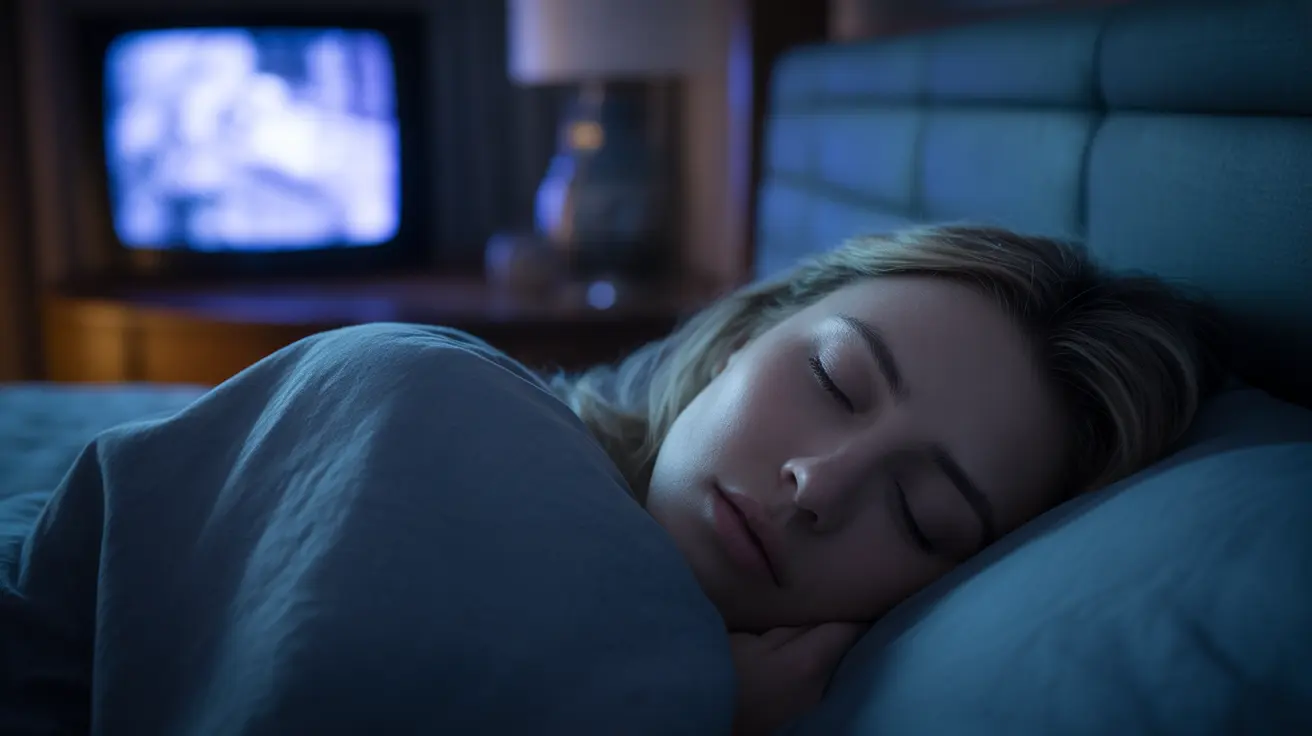Many people have developed the habit of sleeping with their TV on, whether for background noise, comfort, or to help them drift off to sleep. However, this common practice can significantly impact your sleep quality and overall health. Understanding these effects is crucial for making informed decisions about your sleep habits.
While the soft glow and familiar sounds of television might seem soothing, research suggests that sleeping with the TV on can disrupt your natural sleep patterns and lead to various health concerns. Let's explore the effects of this habit and discover healthier alternatives for better sleep.
How Television Affects Your Sleep Cycle
The primary concern with sleeping with the TV on relates to its effects on your circadian rhythm - your body's internal clock. The blue light emitted by television screens interferes with your body's natural melatonin production, the hormone responsible for regulating sleep-wake cycles.
Television's varying sounds and light patterns can also prevent you from reaching deeper, more restorative sleep stages. Even when you think you're sleeping soundly, these disruptions can lead to poor sleep quality and daytime fatigue.
The Impact of Blue Light Exposure
Television screens emit blue light, which can be particularly problematic for sleep. This type of light signals to your brain that it's still daytime, making it harder to:
- Fall asleep naturally
- Maintain consistent sleep patterns
- Achieve optimal melatonin production
- Enter deep sleep stages
Physical Health Implications
Beyond immediate sleep disruption, sleeping with the TV on can lead to several health concerns. Research has shown connections between nighttime light exposure and various health issues, including weight gain and metabolic disorders.
Metabolic Effects and Weight Management
Studies have indicated that exposure to artificial light during sleep may:
- Alter glucose metabolism
- Increase the risk of weight gain
- Affect hormone regulation
- Impact appetite control
Mental Health and Cognitive Function
Regular disrupted sleep from TV exposure can affect your mental well-being and cognitive performance. Poor quality sleep often leads to:
- Decreased concentration and focus
- Impaired memory formation
- Increased irritability
- Higher stress levels
Healthier Alternatives for Better Sleep
Instead of relying on television for comfort during sleep, consider these more sleep-friendly alternatives:
- White noise machines
- Sleep sound apps
- Meditation apps
- Relaxing music
- Audio books with sleep timers
Making the Transition
If you're accustomed to sleeping with the TV on, transitioning to a TV-free sleep environment doesn't have to happen overnight. Start by:
- Using a sleep timer on your TV
- Gradually reducing TV volume
- Positioning the TV further from your bed
- Adjusting screen brightness settings
Frequently Asked Questions
What are the potential health risks of sleeping with the TV on?
Sleeping with the TV on can lead to disrupted sleep patterns, decreased melatonin production, potential weight gain, and cognitive issues. It may also contribute to eye strain and increased stress levels due to constant exposure to artificial light and stimulating content.
How does watching TV before bed affect my sleep quality and melatonin production?
TV's blue light suppresses melatonin production, making it harder to fall and stay asleep. The varying sounds and light patterns can prevent you from reaching deeper sleep stages, resulting in less restorative sleep overall.
Can sleeping with the TV on increase my risk of obesity or other metabolic issues?
Yes, research has shown that exposure to artificial light during sleep can disrupt metabolic processes, potentially leading to weight gain and other metabolic disorders. It can affect hormone regulation and appetite control mechanisms.
What are some alternatives to using the TV as white noise for better sleep?
Effective alternatives include white noise machines, sleep sound apps, meditation apps, calming music, or audiobooks with sleep timers. These options provide consistent background noise without the harmful effects of blue light and varying light patterns.
How can I prevent the negative effects of TV light and sound on my sleep without eliminating it entirely?
You can minimize negative effects by using a sleep timer, reducing screen brightness, enabling night mode settings, positioning the TV away from direct view, and gradually transitioning to alternative sound sources for sleep.




